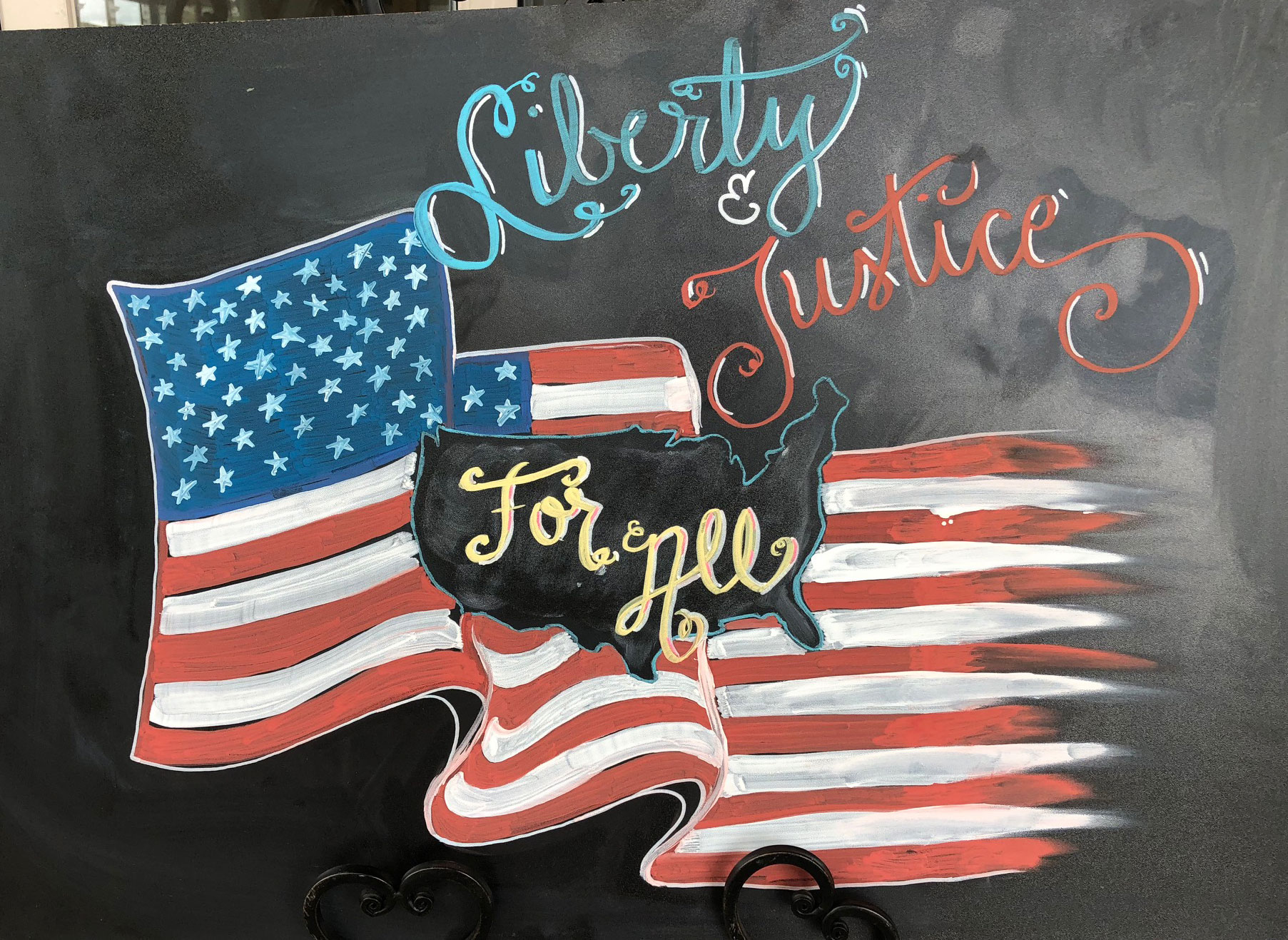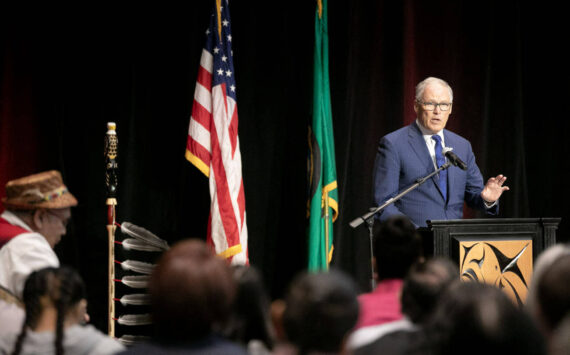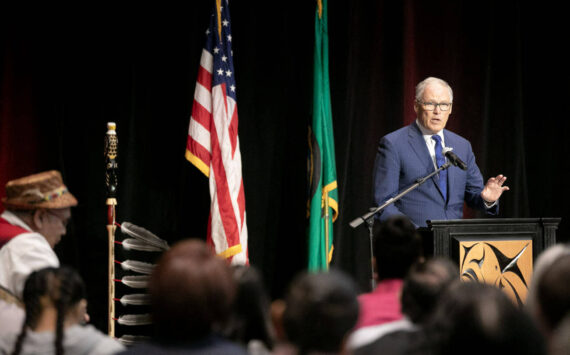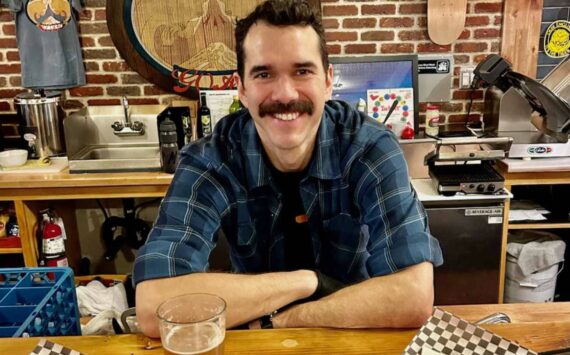By Morf Morford
Tacoma Daily Index
It was my first time teaching at a Native American tribal college. I was new to the community and had an overwhelming amount of preparation to do for my classes.
We had about week of prep time before the school year began.
I was learning my way around campus, meeting a bunch of people and trying to get ready for several classes I had never taught before.
In the midst of this, I got notice of a mandatory meeting for all non-Native staff and faculty.
I already had more to do than I could get done in just a few days.
I went to the meeting with my mind swirling around all the things I thought I SHOULD be doing.
About 8 or 10 white (they called us Anglos) non-Natives gathered in a sparse room. We were all a bit uncertain about the purpose of the meeting.


A Native elder, leaning on a cane, slowly shuffled into the room. He could have been sent by central casting from Hollywood – leathery skin, long dark grey-tinged braids, dressed in denim and earth tones.
In a slow, quiet, weary voice, he stuttered out, “You need to grieve.”
We looked at each other, thoroughly dumb-founded.
I kept thinking, I have lesson plans to do, I don’t have time for this.
But he continued….”My people have walked this land and fished these waters, we have spoken our language for more generations than we could count. We know the seasons and the tides, the animals and the earth, we know where we have come from and who our people are, we know our creator who gives us life and to whom we will return…but you have lost it all. You don’t know where you come from or where you belong. You have lost your faith and culture.”
My lesson plans were swirling around in my head like clattering, loose papers in a windstorm.
“You believe in a god, if you do at all, who is far from you, you don’t know where you come from, or where you belong. You don’t know your own people, your own voice, your own destiny. You need to grieve.”
And then he walked out of the room.
I still had lesson plans to do. I still stressed and worried about my classes.
I did my classes, learned from my failures and mistakes, but for the most part, I learned, my students learned and everything seemed to go well.
But that tribal elder knew more about me than I did. And his lesson stuck with me.
I need to grieve.
That was many years ago, but I still think about who we, as Americans, really are. We believe in, or at least used to believe in, ourselves as the “land of opportunity” with “Liberty and justice for all.”


Our Statue of Liberty welcomed – as a beacon representing all of us – those “tempest-tossed” by persecutions and oppression.
We were the place of refuge, innovation, opportunity and second chances.
And for many we were. But for too many of us, the search goes on. Our suicide rate, in many areas, is the leading cause of death – even among young people. In Washington state, an average of two people a day die from opioid overdoses. Our national murder rate is vastly higher than any other country not currently in a state of civil war.
Politically, we are at each other’s throats and we trust no one – especially those institutions that have led humanity through its darkest days – the church, the government and law enforcement.
How many people do you know who have a sense of “home” – a sense of belonging, a sense of mattering to their community?
Look around at the faces you encounter in any public place – how many strike you as content, compassionate, fulfilled or generous?
How many seem cornered, trapped or somewhere on the spectrum of dissatisfaction and desperation? Or in a semi-permanent zone of discouragement or even despair?
People who feel that they belong, that they matter, do not commit suicide or harm themselves or each other. People who belong, who feel needed and appreciated, contribute to their community – and are glad to. They want to see their neighborhoods cleaner and safer, their schools welcoming and encouraging and their governments – local, regional and national, fair, just and transparent.
And there is no difference between young people and adults – those who feel welcomed and connected are not self-destructive.
Iceland has had a program in place to intervene in youth drug abuse – and it is very simple; offer to teach young people anything they want to learn. It turns out that learning – encountering and applying knowledge – is far more interesting – and life changing – than any drug or alcohol experience. (1*)
There is no political agenda. There is the over-riding sense that, together, we that may never agree on everything, can still work together for that one thing that really matters – that one thing that sets every successful, enduring family, culture and nation apart – the shared common good, that we as individuals may not see or share, but our community is richer and deeper, because of what those have come before have done.
It is not that complicated. And it doesn’t take a budget. It just takes us.
As the poet Gary Snyder put it ‘Go somewhere and stop.’
Community takes presence. A community requires a thousand strands of involvement and continually changing commitments and relationships.
Community will probably never be perfect and will certainly have its awkward moments, but it will be right in a way that we will barely recognize.
As Nelson Mandela put it, “I never lose. I either win or learn.”
Any experience – no matter how frustrating or embarrassing – or costly – is one that can, if we let it, make us a better neighbor, parent or business partner.
Our disasters and mistakes can be our best teachers. And those “difficult” people just might be the most creative and visionary of all – and they just might be the best thing that ever happened to us.
(1*) You can see more on the Iceland program here








